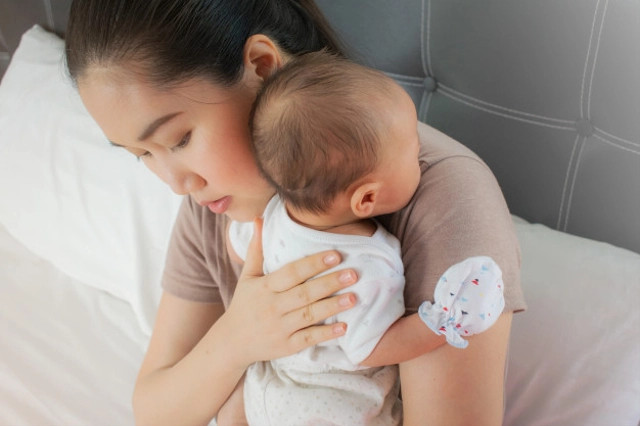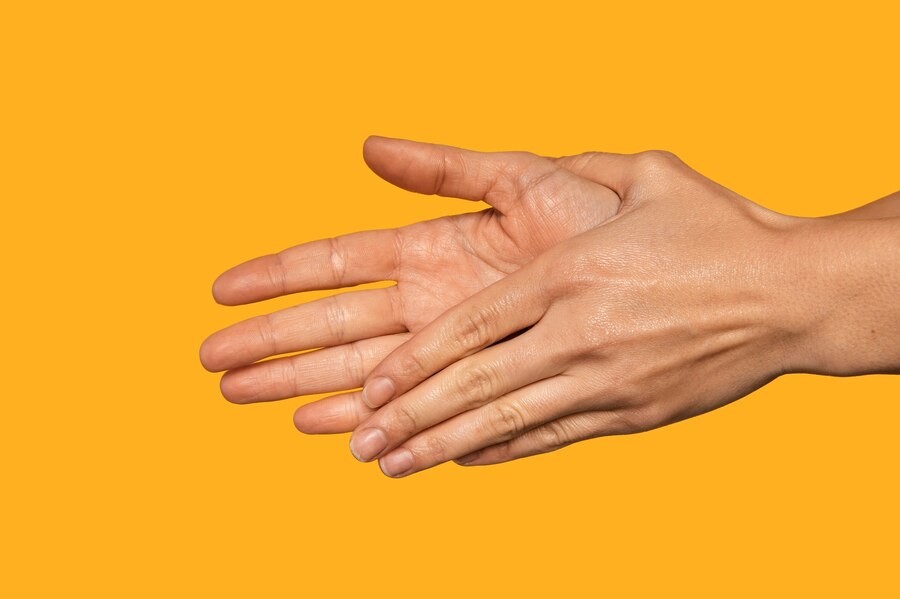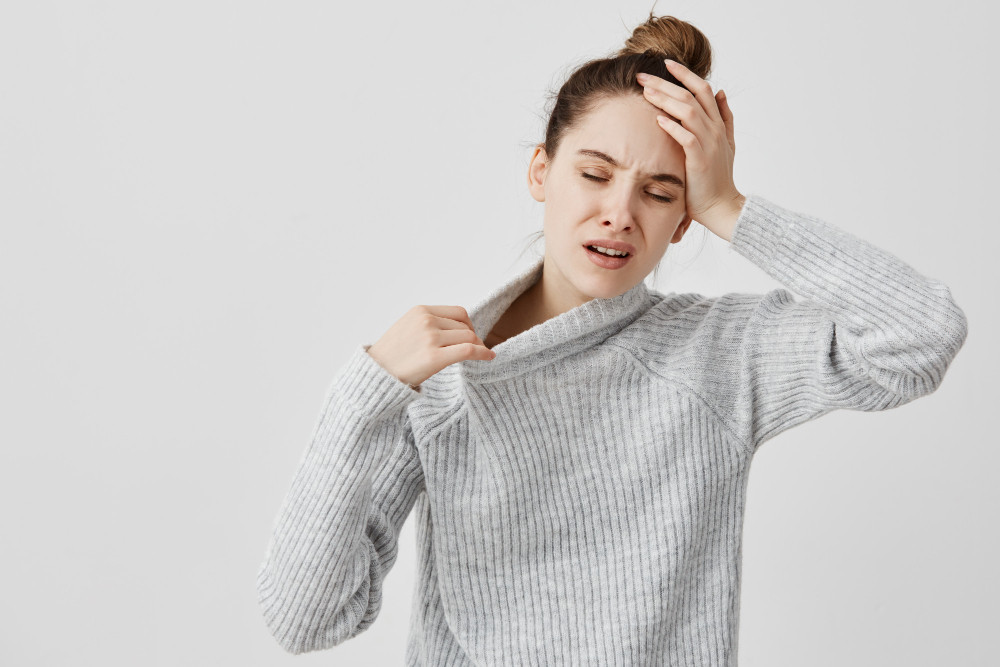It’s common for breastfeeding mothers to notice changes in their body odor after giving birth, which often leads to concern. Some may worry that this sharp body odor will persist permanently. What actually causes this change? Let’s explore the factors and solutions in this article.
Causes of Strong Body Odor After Giving Birth
After childbirth, a woman’s body undergoes significant changes. Breastfeeding mothers, in particular, may experience the following:
- Increased sweating
- Stronger body odor
- Frequent hunger
- Nausea
- Easy fatigue
- Vaginal discharge, regardless of delivery type
- Pain or tears in the vulva or perineum
- Breast discomfort or swelling
- Weight fluctuations
- Changes in hair, skin, and nails
- Hair loss
- Urinary incontinence
- Rapid mood swings
Among these changes, increased sweating and stronger body odor are among the most noticeable and bothersome.
Hormonal Changes
Hormonal fluctuations are the primary cause of body odor after childbirth. Levels of estrogen and progesterone drop significantly, while prolactin levels rise to support breast milk production.
These shifts can signal the brain that the body is too warm, leading to increased sweat production. This extra sweat, combined with hormonal changes, can result in stronger body odor.
Breastfeeding
Breastfeeding mothers tend to sweat more than those who do not. The hormone prolactin, responsible for milk production, also contributes to higher sweat levels.
Sweating and body odor during breastfeeding may serve a biological purpose: helping the baby recognize their mother’s scent. Additionally, pheromones released during breastfeeding, when combined with the baby’s saliva, can produce an unfamiliar odor for the mother.
Lochia (Postpartum Blood)
Lochia, a mix of blood, mucus, and uterine tissue expelled after childbirth, can also contribute to body odor. This discharge lasts for about six weeks postpartum and has a scent similar to menstrual blood, often described as sour, stale, musty, or metallic.
How to Manage Body Odor After Giving Birth
Fortunately, postpartum body odor is temporary and diminishes as hormone levels stabilize. The duration of this condition varies from one mother to another, depending on the severity of hormonal changes.
If body odor makes you feel self-conscious, here are some tips to reduce it:
- Use antiperspirants and deodorants Clean the vaginal area regularly, but avoid using harsh soaps or special cleaning fluids
- If you’ve had a cesarean section, keep the incision site clean to prevent infections and odors
- Regularly wash your breasts and keep them clean
- Take a bath or shower twice a day
- Opt for clothing made of materials that absorb sweat, such as cotton.
- Replace damp clothing immediately
- Wash your bed sheets and pillowcases regularly
- Drink plenty of water
While postpartum body odor and excessive sweating are typically harmless and resolve naturally, other symptoms may require medical attention. If you experience additional signs such as pain, fever, or extreme fatigue, consult a doctor. For professional guidance, you can also use the Ai Care app’s consultation feature, available on the App Store and Play Store.
Looking for more information about pregnancy, breastfeeding, women's and children's health? Click here!
- dr Hanifa Rahma
Cleveland Clinic. (2023). It’s Not Just You: Postpartum Sweating and Body Odor Are Normal. Available from: https://health.clevelandclinic.org;/postpartum-sweating
Zayas, D. (2024). Postpartum Body Odor? What It Is and Why It Happens. Available from: https://www.parents.com/postpartum-body-odor-8640503
Aggarwal, N. (2024). Postpartum Body Odor Is Normal—But You Can Manage It. Available from: https://www.thebump.com/a/postpartum-body-odor












